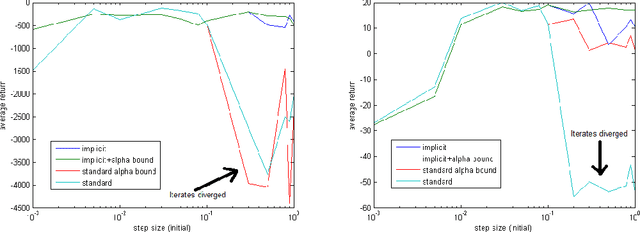Implicit Temporal Differences
Paper and Code
Dec 21, 2014
In reinforcement learning, the TD($\lambda$) algorithm is a fundamental policy evaluation method with an efficient online implementation that is suitable for large-scale problems. One practical drawback of TD($\lambda$) is its sensitivity to the choice of the step-size. It is an empirically well-known fact that a large step-size leads to fast convergence, at the cost of higher variance and risk of instability. In this work, we introduce the implicit TD($\lambda$) algorithm which has the same function and computational cost as TD($\lambda$), but is significantly more stable. We provide a theoretical explanation of this stability and an empirical evaluation of implicit TD($\lambda$) on typical benchmark tasks. Our results show that implicit TD($\lambda$) outperforms standard TD($\lambda$) and a state-of-the-art method that automatically tunes the step-size, and thus shows promise for wide applicability.
 Add to Chrome
Add to Chrome Add to Firefox
Add to Firefox Add to Edge
Add to Edge